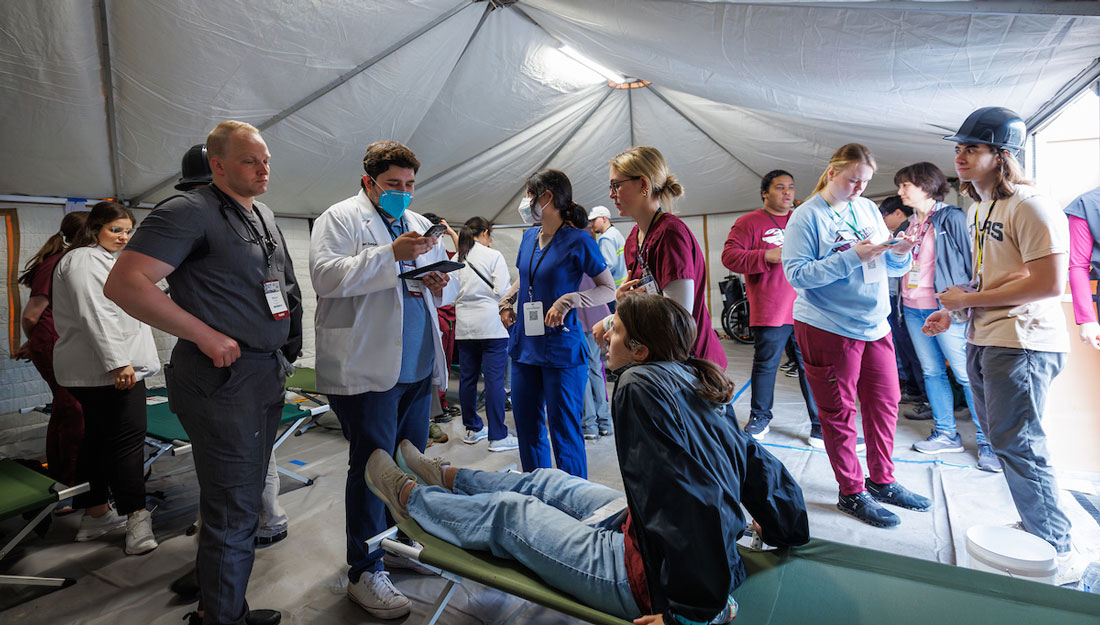- Ann Kellett, PhD
- Public Health, Research, Show on VR homepage
New study finds low-income mothers with more access to free, long-term contraception have better mental health
Study contributes to the growing evidence linking access to contraception with mental health

The study provides new evidence that the change in payment for immediate postpartum, long-acting reversible contraception was associated with reductions in self-reported days of not good mental health among low-income mothers. (Adobe Stock)
A study by a team of researchers at the Texas A&M University School of Public Health suggests that low-income mothers in states with more Medicaid access to free, long-acting reversible contraception immediately following childbirth experience better mental health.
The study, by Daniel Marthey, PhD, Elena Andreyeva, PhD, and Hannah Rochford, PhD, assistant professors in the Department of Health Policy and Management, was published in the journal Health Services Research.
“The goal of making contraceptives cheaper and more accessible has a long history, beginning with the introduction of the federal Title X family planning program in 1970,” Rochford said. “But when the Affordable Care Act mandated that all federally approved contraceptive devices and services be made available to patients at no additional cost, this caused problems because contraceptives such as intrauterine devices and contraceptive implants can cost the provider more than the single, lump sum payment the provider receives from Medicaid to obstetric care.”
As a result, some state Medicaid agencies began to bill separately for this form of contraception, known as immediate postpartum, long-acting reversible contraception (IPP LARC).
“This change made IPP LARC more available, and we studied how this affected the mental health of low-income mothers likely to receive IPP LARC following delivery,” Marthey said. “We found that respondents from states that implemented these changes were significantly less likely to report experiencing any days of not good mental health in the past 30 days relative to a control group from states that had not implemented the change.”
For this study, the research team examined the effect of state decisions to unbundle postpartum long-acting reversible contraception on self-reported maternal mental health status using data from the 2014-2019 core component of the Behavioral Risk Factor Surveillance System, a nationally representative, telephone-based survey of noninstitutionalized U.S. adults 18 years and older.
The data collected includes self-reported information about demographic characteristics, health behaviors and health status. Respondents were women aged 18-44 years who qualified for Medicaid and who reported having at least one child under age 18 in the household. They were asked how many days out of the past 30 days they experienced mental health that was “not good” due to stress, depression and problems with emotions. The data were analyzed using Stata version 16.0.
The study provides new evidence that the change in IPP LARC payment was associated with reductions in self-reported days of not good mental health among low-income mothers. One measure suggests that this was associated with a decrease of between 5.7 percent and 11.5 percent in the predicted probability of reporting any days of not good mental health in the previous month.
“This was especially the case among women with at least two children residing in the household,” Marthey said.
The researchers believe that making IPP LARC more widely available could lead women to switch from less effective contraceptive methods—or no contraceptives—which could reduce the risk of unintended pregnancy. In addition, they may choose LARC over sterilization, which would not affect the ability to conceive, but would give patients more autonomy over future reproductive decisions. They speculate that both mechanisms have direct mental health benefits.
“At a minimum, we believe our findings demonstrate that increased access to contraception has benefits beyond reproduction,” Andreyeva said. “The policies we studied helped improve the mental health of low-income women at a time when mental health is a top public health concern.”
Media contact: media@tamu.edu


